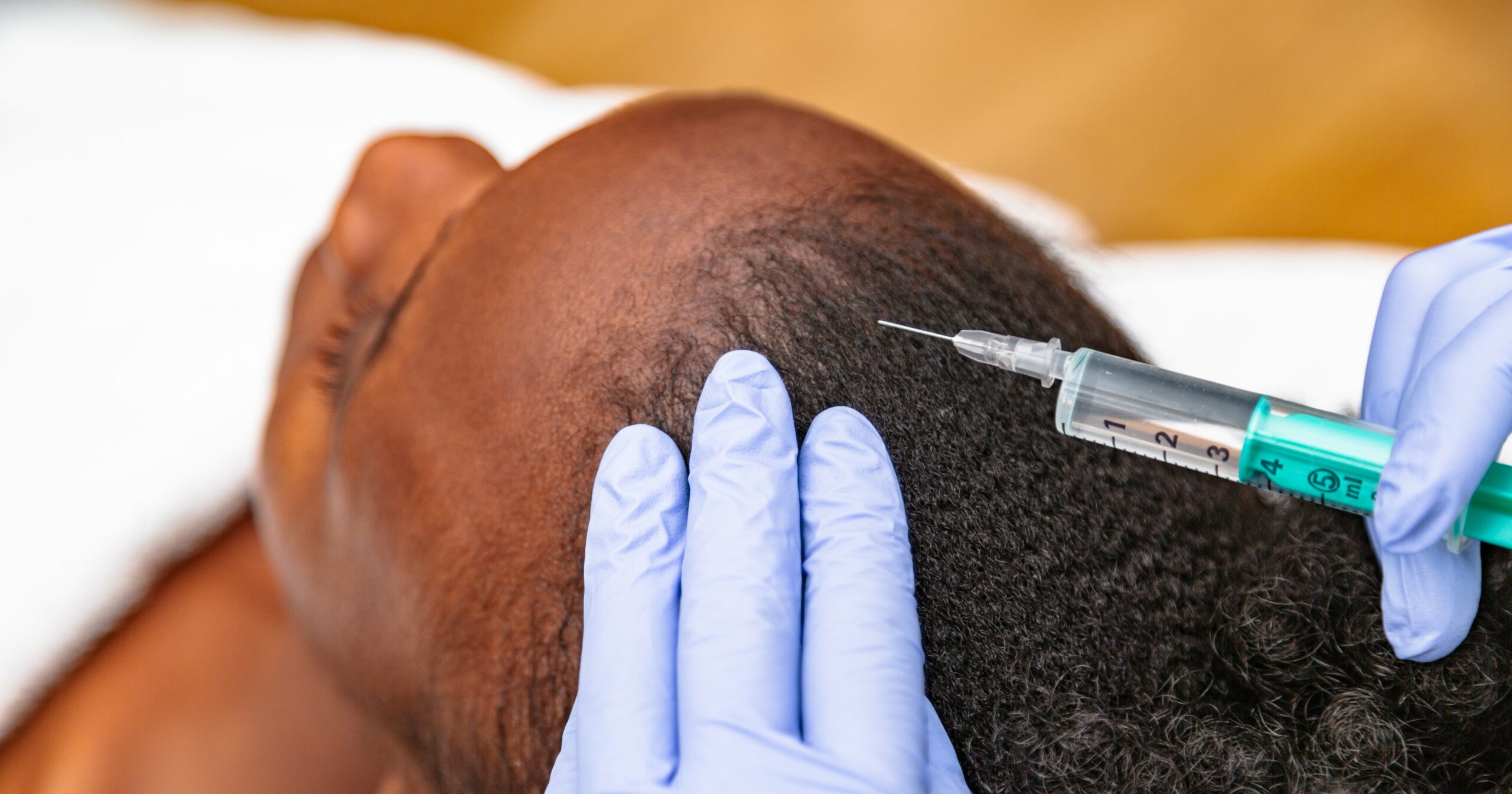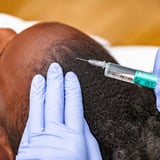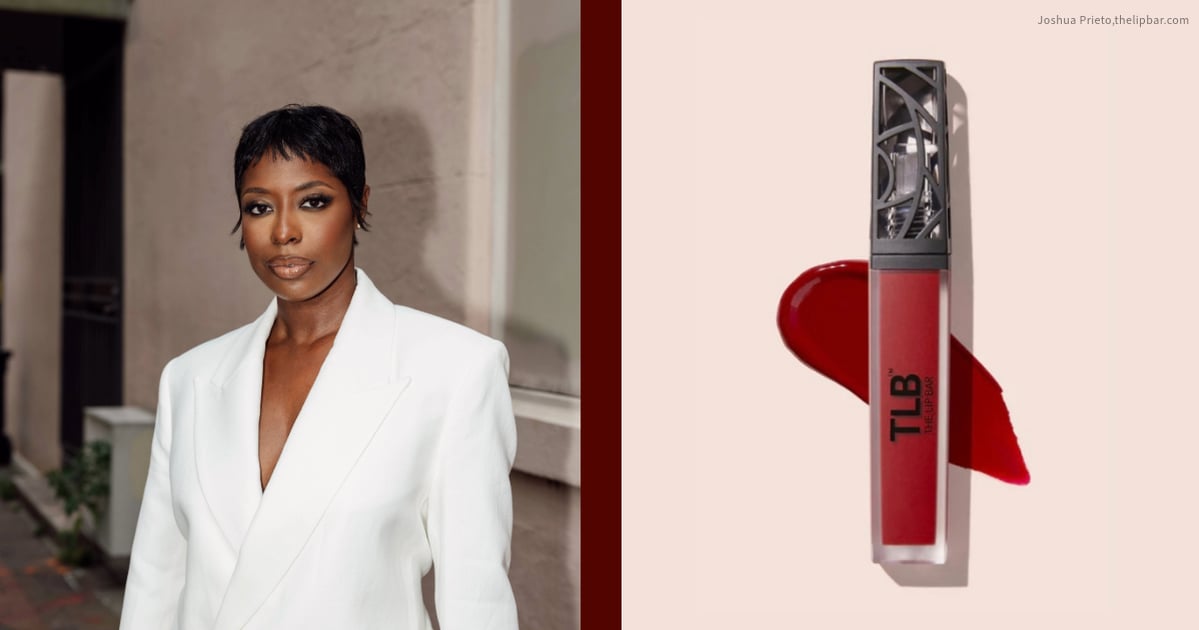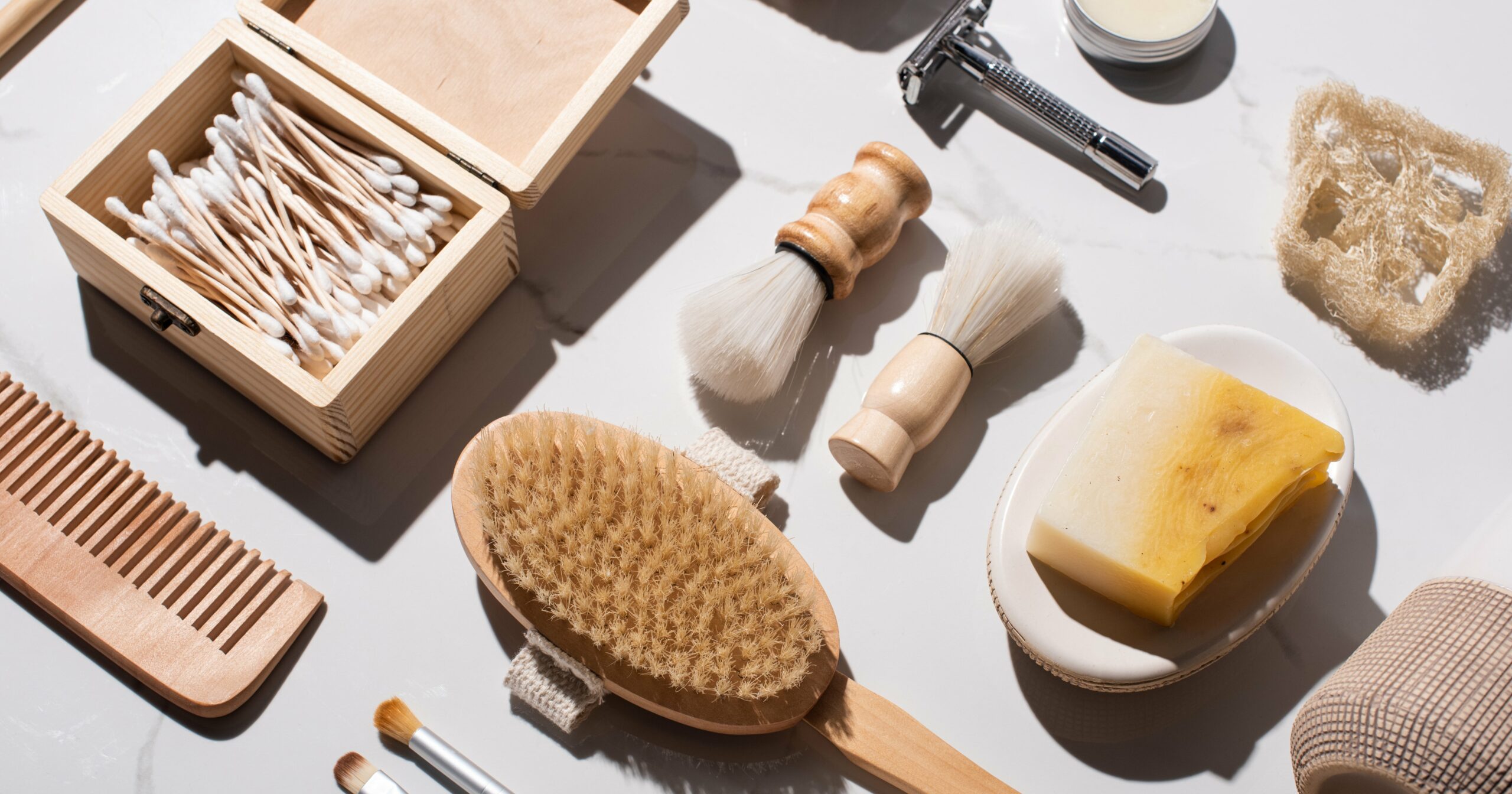Image Source: Getty / PaulGulea
You might think of Botox for nothing more than wrinkle softening or forehead freezing, but did you know that the popular neuromodulator can also potentially stop the sweating in your head, which in turn, can make your edges last longer?
As it turns out, the off-label practice has been going on for quite some time. “Botox injections have been used as an effective treatment for excessive sweating,” dermatologist Michelle Henry, MD, FAAD, tells POPSUGAR. “They are now being used by women (especially Black women) to prevent sweat from ruining their edges, which are the short baby hairs that frame their face.”
If you’ve ever experienced hyperhidrosis you’ve probably heard that Botox has been used to treat the condition. But the question of what to do about sweating out your edges if you’re a frequent gym-goer or someone who lives in a hot climate, has been a longstanding one that has largely been left unanswered – until now. Ahead, Dr. Henry and dermatologist Jessie Cheung, MD, explain everything you should know about this treatment, from how much it costs to how long the results last.
Experts Featured in This Article
Michelle Henry, MD, FAAD, is a board-certified dermatologist based in NYC.
Jessie Cheung, MD, is a board-certified, fellowship-trained dermatologist with practices in Chicago, Illinois, and New York City.
Do Botox Injections in the Hairline Stop Sweating?
In short: yes. “Because Botox stops sweating, it can definitely preserve your edges and blowout,” Dr. Cheung tells PS. For the treatment, the neurotoxin is injected around the parameter of the forehead. “This blocks nerve signals responsible for producing perspiration and paralyzes the sweat glands,” Dr. Henry says. “This stops sweating in the area for about three to six months.”
The best part of this procedure is that it is quick and requires virtually no downtime. “The entire process usually takes five to 10 minutes,” Dr. Henry says. “You can even return to your usual activities right after treatment – just don’t wash your hair or apply any hair treatments that day,” Dr. Cheung adds.
You’ll also want to avoid a few other activities: “Patients are advised not to lie down or go to a sauna for four hours after the treatment,” Dr. Henry says. If you have any excessive swelling or adverse reactions to the injections, be sure to contact your doctor immediately to address any concerns.
Who’s a Good Candidate For Hairline Botox?
There are no real stipulations on the type of person that is best suited for hairline Botox, as is the case for many elective cosmetic treatments. “Anyone who wants to stop sweating is a good candidate,” Dr. Cheung says. If you experience excessive head sweating to the point that it becomes a nuisance or even simply because you want to keep your edges intact, it doesn’t hurt to broach the topic with your dermatologist.
Hairline Botox Benefits
While the treatment will actually help with stopping hairline sweating, it can also have another unintended benefit: less heat damage. One of the biggest gripes about sweating out your edges is the frequent use of heat or other styling products to blend it with the rest of your hair. If there is no sweating happening in the first place, this allows you to not have to continuously re-style your hair, which it turn, can actually lead to healthier edges and leave out.
Hairline Botox Injections Cost
Hairline Botox is usually an elective procedure and, as a result, is not covered by insurance. “The cost of injections will vary depending on the dose used,” Dr. Cheung says. “A simple edge treatment should cost between $300 to $500.”
Hairline Botox Risks
First, it’s worth noting that this practice is considered off-label, as the FDA has only approved the use of Botox for underarm hyperhidrosis (not scalp). This means you definitely want to make sure to go to a trained, board-certified dermatologist who can perform the procedure safely. Otherwise, the biggest risk with using Botox in this way is that if you are a heavy sweater in other places, treating your edges doesn’t affect that. “You can develop an increase in sweating in the areas that weren’t treated,” Dr. Cheung says. “Still, it’s easy to identify and inject those areas with subsequent treatment.”
Alongside the possibility of some bruising and pain, if you are also a patient with certain neuromuscular disorders or active infections in the injection area, consider speaking to your doctor first before treatment to make sure it’s right for you.
What to Expect When Getting Hairline Botox
The actual process of getting Botox in your edges is as straightforward as any other injection treatment. “The skin is cleaned, and then Botox is injected with a series of small pokes along the hairline,” Dr. Cheung says. “Most people notice a difference within a few days, and results can last up to 6 to 9 months, depending on the dose and brand.”
While not a permanent fix, hairline Botox can be an effective alternative to constantly putting heat on your edges. As with any cosmetic procedure, be sure to see a board-certified dermatologist when getting the treatment and ensure that they have a plan in place in case of any serious adverse reactions.
Ariel Baker is the associate editor for PS Beauty. Her areas of expertise include celebrity news, beauty trends, and product reviews. She has additional bylines with Essence and Forbes Vetted.




